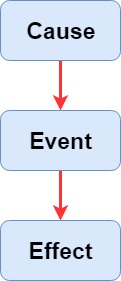Risk Register Analysis
Contents |
Introduction
A risk register consists of three main elements. First and foremost it consists of the risk, secondly, it consists of the cause of the risk, and third it consist of the action of the risk. When building up a risk register these three elements will be covered by the following 4 steps. The first step is called the Identify phase. Here all possible risk will be identified. The second step is called the Assess phase. The possible risks identified must be evaluated regarding probability and impact on the PPP. The third step is called the Plan phase. The management response is planned to ensure the if a risk materializes, the PPP is not taken by surprise. The fourth step is called the implement phase. The risk register is implemented in the organization and response actions is monitored to ensure the correct line of actions is carried out. During the lifetime of a PPP, the risk register should be evaluated to ensure that new risk has not arrived, or already known risk has now changed. It is important that threats and opportunities are communicated to stakeholders. This is a continuous process during the lifecycle of the PPP, to ensure that every one involved knows how to respond if a risk materializes.
Identify
Assess
Plan
Communicate
Responsibilities
References
- ↑ Managing Successful Projects with PRINCE2. http://proquestcombo.safaribooksonline.com.proxy.findit.dtu.dk/9780113310593
